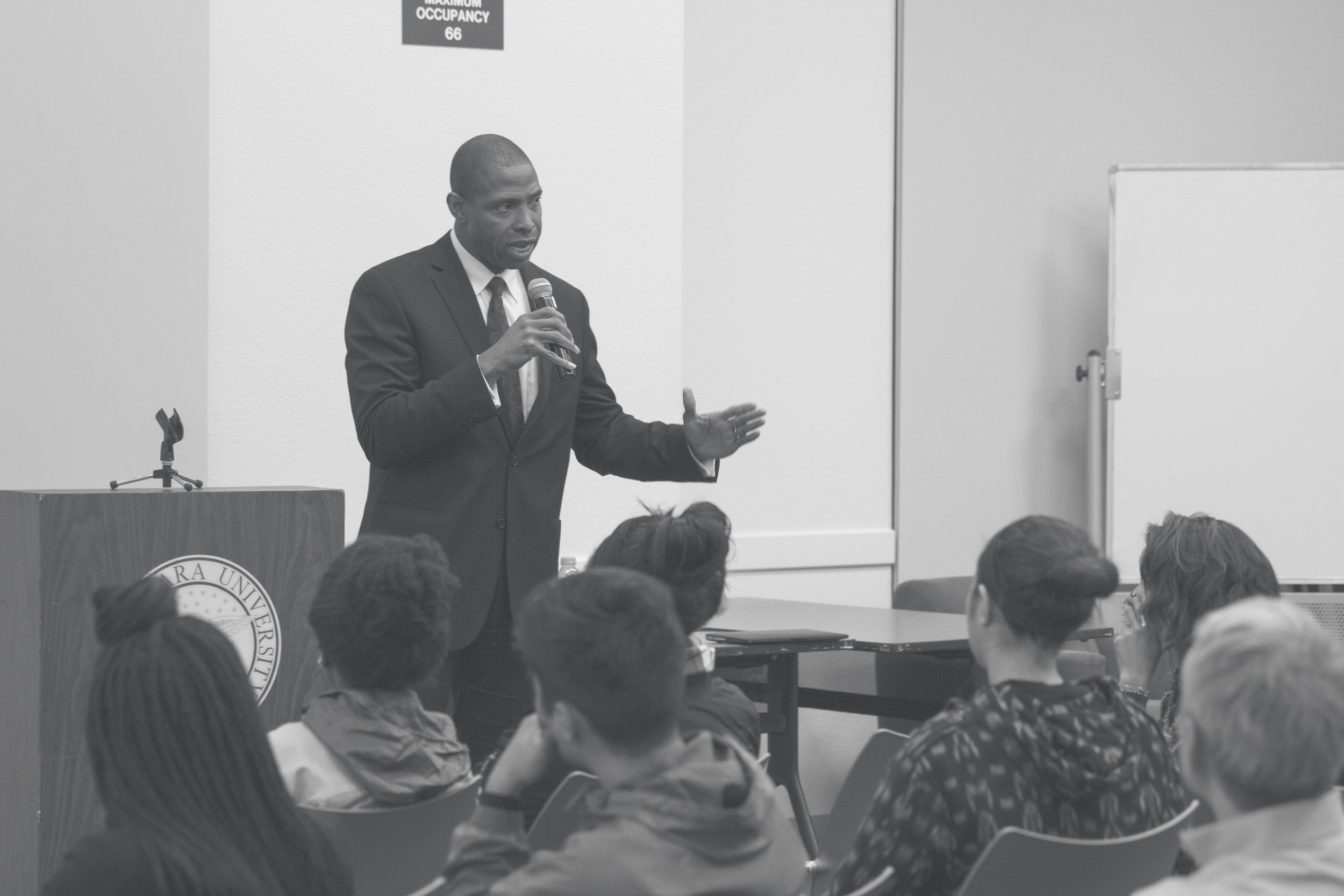Unity 4 Hosts Lively Open Forum With Administration
Enrollment numbers and LEAD program topic of discussion
Erin Fox & Emily MunTHE SANTA CLARANovember 12, 2015 [dropcap]C[/dropcap]oncerned students were hard pressed to find seating on Monday night as they filled the Graham Residence Hall commons to engage with university administrators in a frank discussion about diversity at Santa Clara.
[dropcap]C[/dropcap]oncerned students were hard pressed to find seating on Monday night as they filled the Graham Residence Hall commons to engage with university administrators in a frank discussion about diversity at Santa Clara.
Unity 4, a student activist group dedicated to bringing racial and sexual identity discrimination to the forefront of campus conversation, hosted the event.
The group has demanded that the university make several concrete changes about how it handles diversity issues.
Among these requests are greater transparency in administrative decisions, adding a second diversity class to the core curriculum and a greater array of available bias incident reporting tools.
University president Fr. Michael Engh, S.J., accompanied by several administrators, engaged in dialogue with students about issues of diversity on campus during the meeting.
Minority student enrollment numbers were at the forefront of the conservation — Unity 4 has demanded that the percentage of black students at Santa Clara rise from three to six percent by 2020.
Mike Sexton, vice president for enrollment management, said the initiative is “a major undertaking” for the university with both “benefits and detractors,” in the long run.
“The demographics aren’t in our favor,” Sexton said. “It’s much more of a financial aid issue than an admission issue.”
He added that although only three percent of students in the class of 2019 are black, he does not see this as evidence that the student body’s ethnic diversity is underrepresented.
“Some may have African-American heritage, but fall under another [ethnic] category,” he said.
However, he ensured that the admissions office intends to change the way counselors review applications by weighing an applicant’s history of community service involvement, strength of personal statements and racial background more heavily in the process .
Unity 4 also requested that the univeristy add another diversity class to the core curriculum. Dennis Jacobs, provost and vice president for academic affairs, said this academic year is the time to assess the diversity requirement of the core implemented in 2009 and decide if it is fulfilling its intended purpose. He mentioned that a second diversity requirement has been proposed, but is not set in stone.
“Revamping won’t take place for another five years or so,” Jacobs said.
He also added that the university hopes to hire more faculty of color to match the diversity in the student population.
Students then voiced their opinions.
A male freshman student asked what the university is doing to support the minorities it’s admitting. He noted that the room was mostly filled with students of color, and that the majority of the school was not represented at the forum.
Aldo Billingslea, associate provost for diversity and inclusion, agreed, saying “we’re talking to the choir, we need to bring it to the congregation.”
Billingslea added that the LEAD Scholars program increases support for minority students.
Sophomore Jasmyne Gaston, an active member of Unity 4, was happy that the administration spoke with students about diversity issues, but was not satisfied with all of their answers.
Particularly, she felt that the administration over-emphasized the abilities of the LEAD program.
“LEAD is not just for minority students. Not all of these minority students are first generation college students,” she said. “My mother went to college, but that does not necessarily meant that I have that support. A minority student needs more than just academic support.”
Unity 4 will host another open forum with the university administration in February.
Contact Erin Fox at efox@scu.edu and Emily Mun at emun@scu.edu